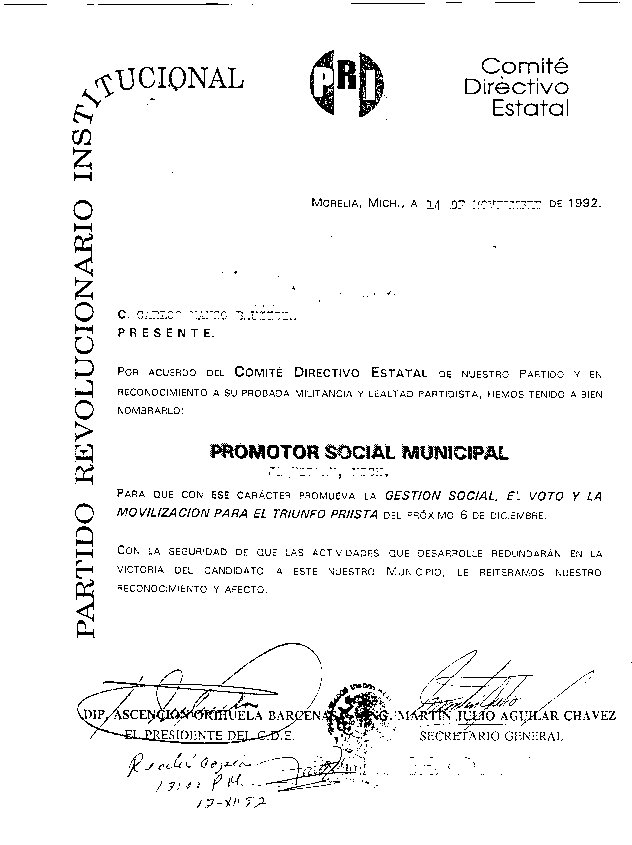
During the 1992, the local municipal police of the town of Jiquilpan, then under the government of the opposition PRD (Party of the Democratic Revolution), detained a pick-up owned by the (PRI-controlled) state government. The vehicle was being driven by a local PRI "municipal social promoter", Carlos Manzo Bautista, son of a Guaracha ejidatario who had been forced to leave the community to live in Jiquilpan many years ago after a killing. Carlos, alias "El Tranchetes", had a long history of activism in elections denounced by the opposition as fraudulent, not merely locally, but in other states, including Tamaulipas in the north of the country. His past assignments included the extraordinary elections held in the Michoacán city of Uruapan in 1990, when a large number of voters mysteriously disappeared from the electoral roll between the first and second ballots. His vehicle contained a large number of documents, including a list of the PRI's many other "social promoters" in communities throughout the state. Most damning was a document from the PRI candidate in Pajacuarán asking a state official to supply PRONASOL resources to be delivered for projects clearly intended to buy votes, a receipt for 750,000 pesos from the "Vivienda Digna" programme, and a pile of additional blank receipts which were to be used when other resources were collected. On the back of a document stressing the correct procedures for distributing PRONASOL resources (which were to be requested by local committees from properly constituted authorities rather than aspirant PRI candidates and the party's electoral organisation), was a handwritten series of notes detailing ways in which the governor could help the PRI campaign in dissident municipios and disadvantage the opposition parties which also made reference to the use of public resources and personnel for electoral purposes.

Carlos Manzo Bautista's party credential
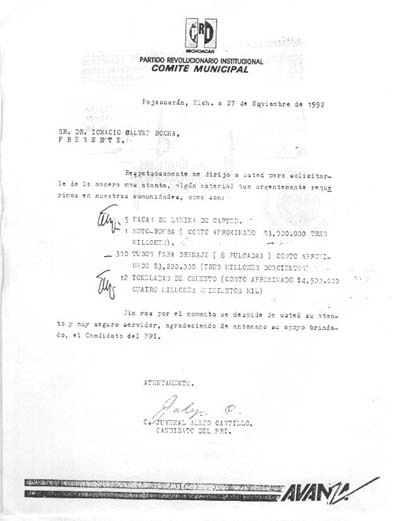
PRI candidate for Pajacuarán, Ciénega de Chapala, requesting PRONASOL resources for electoral purposes
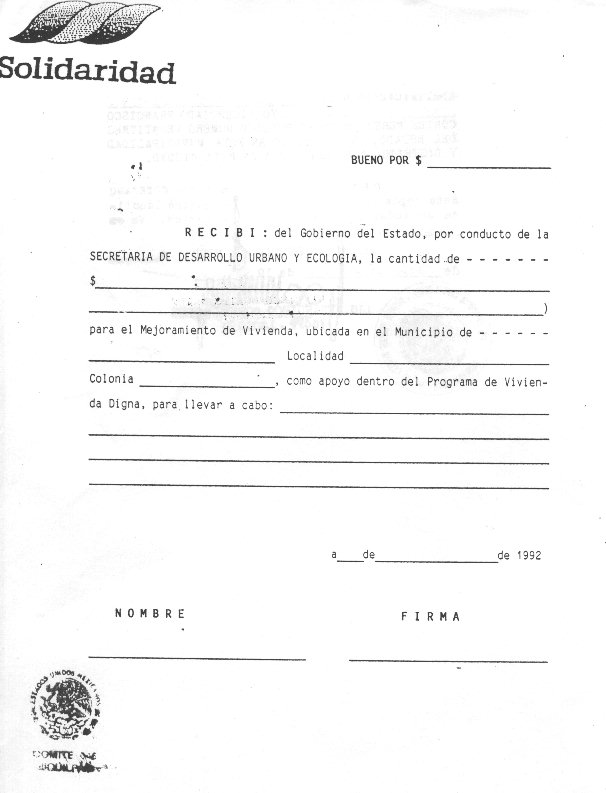
A blank Solidaridad (PRONASOL) receipt from a pile found in the pickup
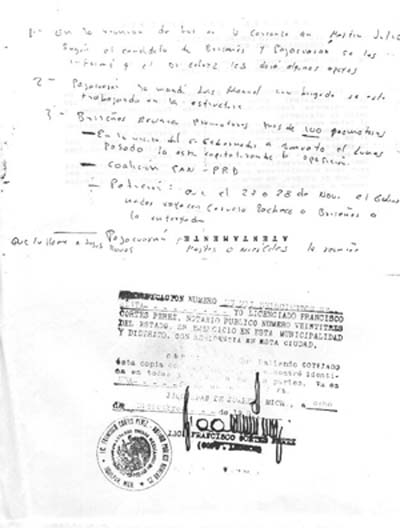
Handwritten notes on PRI election strategy, notarized after their seizure by the PRD.
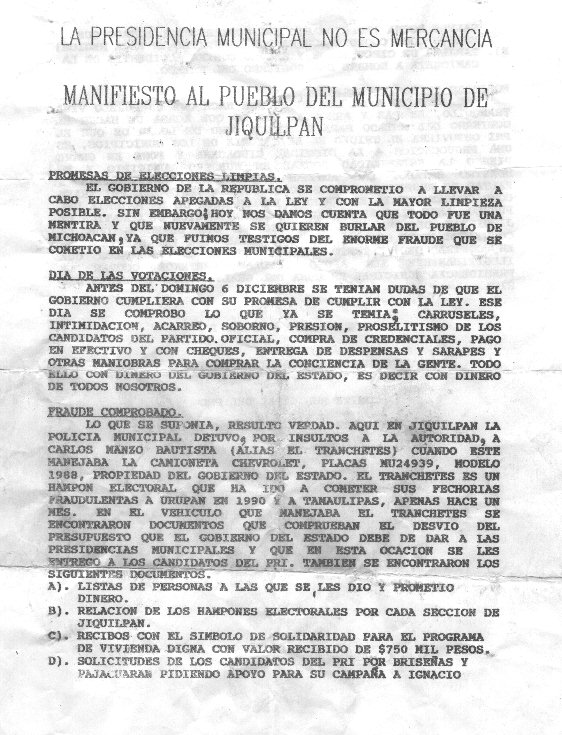
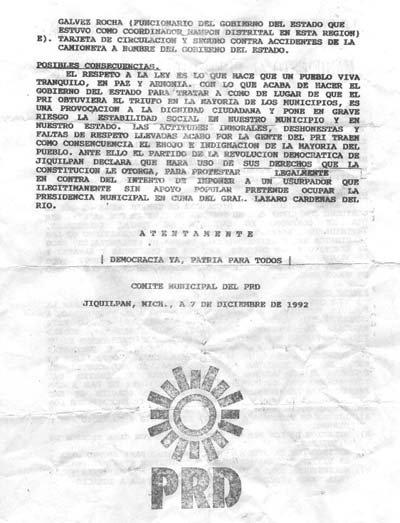
PRD denunciation of PRI electoral tactics: "The municipal presidency is not for sale".
The 1992 Michoacán municipal elections were especially dirty. The PRI's victory in the gubernatorial elections had been contested, and the candidate had asked for leave of absence and been replaced by an interim governor (also of the PRI) who allowed the PRI party nominations for mayoral candidates to become a virtual auction, the prize going to the highest bidders irrespective of reputation. In the case of Villamar, this resulted in the candidacy going to a person who had served time in prison for a fraud involving the shop of the National Commission for Popular Subsistence (CONASUPO), a state purchasing agency which came into the news again after Carlos Salinas left office when his brother Raúl, who had been its director, was accused of having committed gigantic frauds involving, inter alia, the supply of imported food and milk unfit for human consumption to some of Mexico's poorest people. Persons with criminal convictions are theoretically debarred from standing for public office of any kind in Mexico. Considerable dissent emerged within the PRI itself over the process of candidate selection in 1992, and some PRI factions fielded independent candidates or supported the candidates of opposition parties.
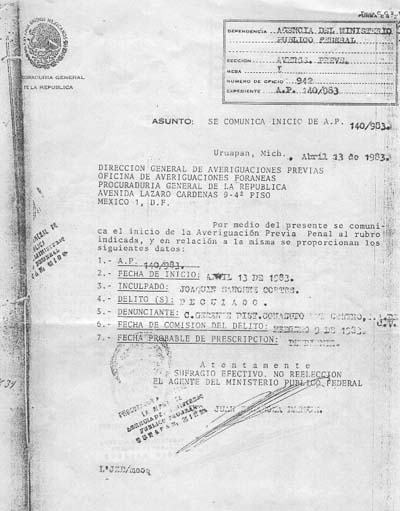
Official document indicating the criminal conviction in 1983 of the PRI candidate for mayor in Villamar.